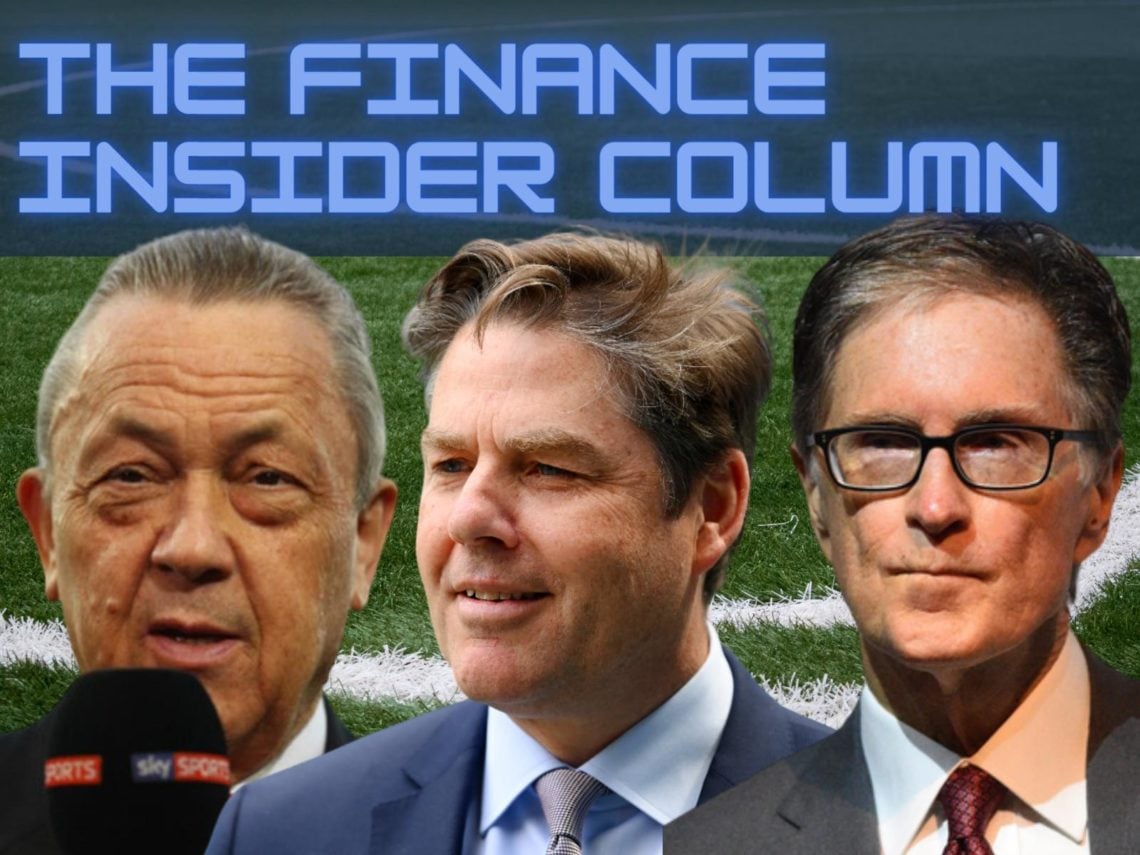
Finance Insider Column: Liverpool and Newcastle United join forces as unprecedented plan revealed
West Ham co-owner David Sullivan’s bellicose take on independent regulation sounds as though he has just cornered you in the pub.
He spluttered: ‘Look at the mess this country is in! Rubbish! The government is doing this all for PR! It’s a total waste of money!’
Not a sober and reflective response to what is, whether you like it or not, perhaps the most significant and forward-thinking shake-up to English football governance in the game’s history.
Sullivan’s rhetoric is also nakedly self-serving. It is telling that this issue, according to sources behind the scenes, has generated an almost unprecedented consensus among Premier League clubs – from those with widely differing leaderships such as Liverpool and Newcastle United.
First, the Premier League sent in its stormtroopers. Crystal Palace chairman Steve Parish, so often the ringleader in these situations, was despatched to BBC Newsnight on the eve of the announcement. Then, Sullivan’s statement to Sky on behalf of West Ham.
Next, it was Premier League CEO Richard Masters’ turn to rail against the government’s proposal. His musings were trussed up in diplomatic language but guided by the same avarice.
“This needs to be a very precise regulatory tool and not a sledgehammer, otherwise it might take football sidewards, or even backwards, rather than forwards.”
Backwards for who? Not for supporters, whose interests under the independent regulator will have, at long last, a degree of constitutional protection.

Some argue that the regulator’s powers lack punch and imagination, and there are questions that demand an answer.
Who will head up the regulator? Could it be a political grandee being sent out to pasture, as some fear? How will the powers of the body be squared with the Court of Arbitration for Sport? Might more stringent financial regulation deter the kind of investment that has made the Premier League the UK’s most illustrious cultural export?
These are legitimate concerns, expressed by experts whose motivations, unlike those of the Conservative government whose polling figures are in freefall, cannot be called into question.
But the Department for Digital, Culture, Media and Sport’s proposals represent progress. That much cannot be denied.
Sources told Football Insider in December last year that real-time monitoring of club finances would be among the powers of the regulator, and that has now been confirmed.
Finance expert Kieran Maguire has told this site that this measure will help identify “problem clubs” before they suffer the same fate as Derby County, Bury and Macclesfield Town.

The concept of real-time monitoring is similar in form and function to the liaison process between Everton and the Premier League that took place for several months last year, which saw the club escape financial fair play sanctions.
But Everton, fuelled by the kind of myopic strategising that has seen them lose £370million in the last three years alone, also oppose regulation.
The same is true of their rivals across Stanley Park. Privately, Liverpool fundamentally object to outside interference in football governance, but you won’t hear that deeply-held view articulated by an Anfield executive any time soon.
It is understood that the Premier League’s coordinated campaign against independent regulation will not explicitly involve the so-called ‘Big Six’.
The Super League conspiracy has deemed them a poisoned chalice in the eyes of the voting public, whose backing will be needed if the Premier League’s lobbyists are to have any hope of watering down the government’s proposal.

Significantly, the anti-regulation campaign has been launched in the shadow of financial redistribution talks between the Premier League and the Football League.
The EFL Is pushing for a 25 per cent cut of top-flight TV revenue alongside the abolition of parachute payments.
It has been widely reported that the Premier League has offered 19 per cent. Sources have told Football Insider, however, that no formal offer has yet been made.
The new regulator would have the power to order the Premier League to give up more of its cash, but officials insist that this will be a measure of last resort.
That would render the view of the likes of Newcastle United, who this site understands oppose the abolition of parachute payments, redundant.
The Magpies are one of four clubs – the other three being Southampton, Chelsea and Bournemouth – to have changed hands in the last 18 months, and they will be joined by Man United before the end of the season.
The destinies of Everton, West Ham and Tottenham meanwhile are all up in the air and could be adjudicated on by the independent regulator, which will introduce what it claims will be a more effective owners’ and directors’ test.
Gambling reform is also on the cards, and Football Insider understands that the much-delayed White Paper on the industry’s involvement in football sponsorship will be released in the second quarter of 2023.
That will likely lead to a long-heralded ban on front-of-shirt gambling sponsorship in the Premier League, while white-label websites used to bypass foreign gambling laws are also in the crosshairs.

That could have impacts on the commercial dealings of clubs like Aston Villa and Nottingham Forest, the most recent top-flight sides to sign deals with companies linked to The Gaming Platform, a shadowy conglomerate with links to organised crime and a history of fabricating its corporate history.
These are issues the game has failed to address independently. Maybe, it’s time to let someone else have a go.
In other news, Mauricio Pochettino “keen” on West Ham job.
